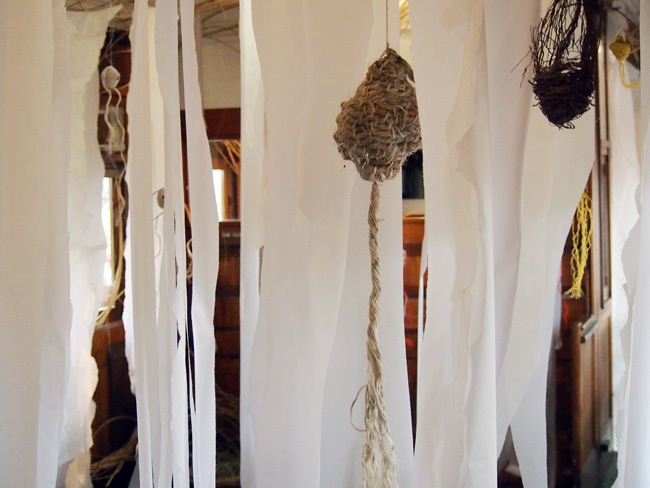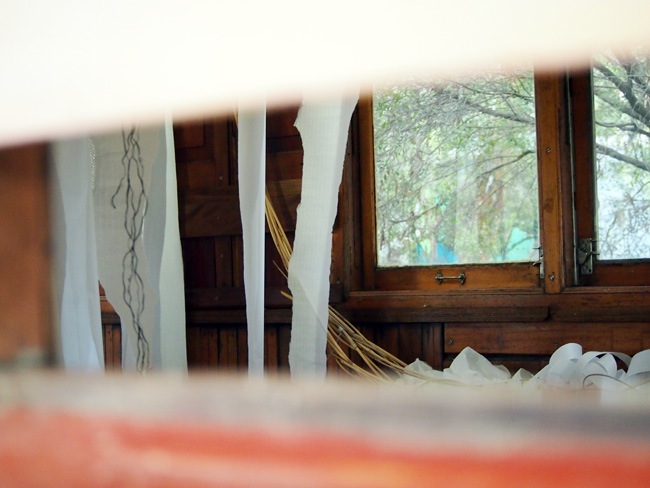Melbourne dispatch - CERES Environment Park
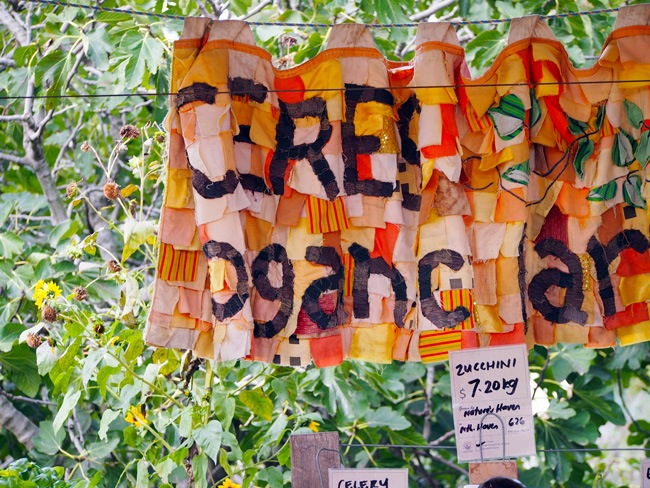
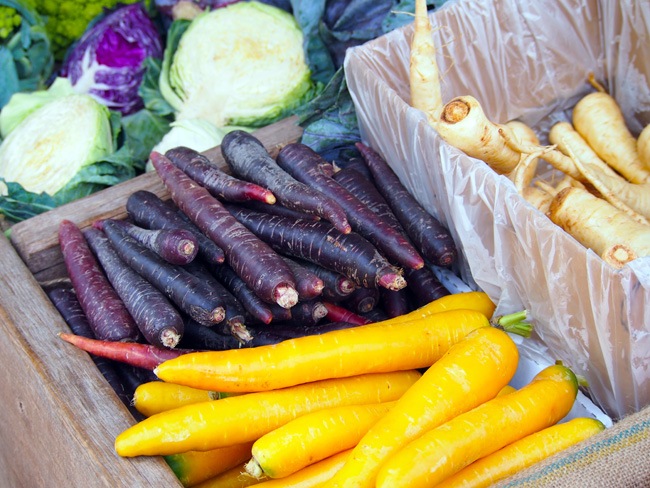

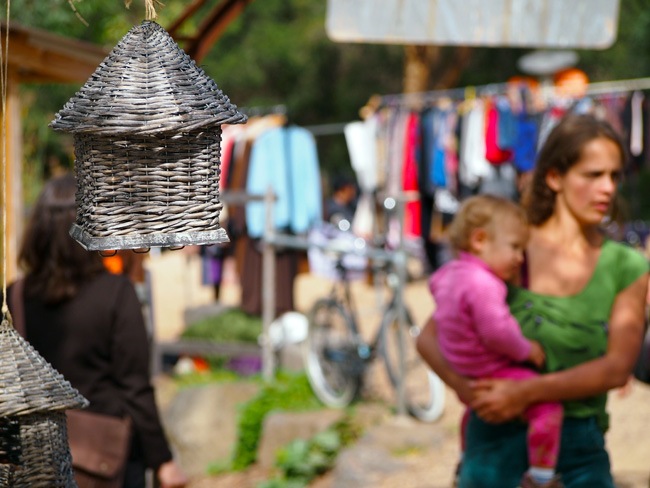

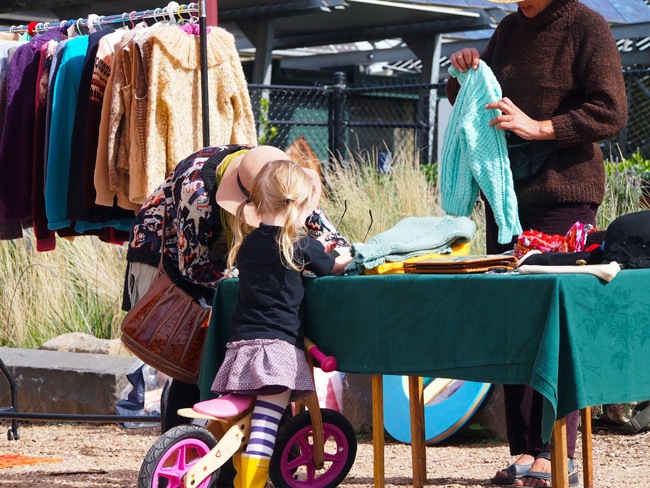

 On the banks of the Merri Creek in East Brunswick, Melbourne, is the prettiest, sweetest-smelling city dump you will ever find. What was once four-and-a-half hectares of landfill has been converted, metre by metre, into an oasis of green, sustainable paradise. It's called the Centre for Education and Research in Environmental Strategies, or CERES, which is a handy acronym since Ceres was the ancient Roman goddess of agriculture. (How long do you think it took them to make that one work?)
On the banks of the Merri Creek in East Brunswick, Melbourne, is the prettiest, sweetest-smelling city dump you will ever find. What was once four-and-a-half hectares of landfill has been converted, metre by metre, into an oasis of green, sustainable paradise. It's called the Centre for Education and Research in Environmental Strategies, or CERES, which is a handy acronym since Ceres was the ancient Roman goddess of agriculture. (How long do you think it took them to make that one work?)
I took my ever-so-green parents to CERES while they were visiting last week, for a stop-off at the organic market, a wander through the nursery and shop, a peek at the farm, and a leisurely lunch at the outdoor cafe while listening to live music.
Behind us, children slid joyfully down a dirt slope on their backsides, landing almost under our cafe table with squeals of laughter (and a few anxious "Mummy I'm stuck!" pleas from the smaller children, half-way down the hill).
Other littles watched the free-range chickens with delight, and bus-loads of school-children could be seen at one workshop or another as we explored the grounds after lunch. Glancing around the market and cafe, I don't think I'd ever seen so many string bags and braids in one place (and I used to live in Glebe, people).

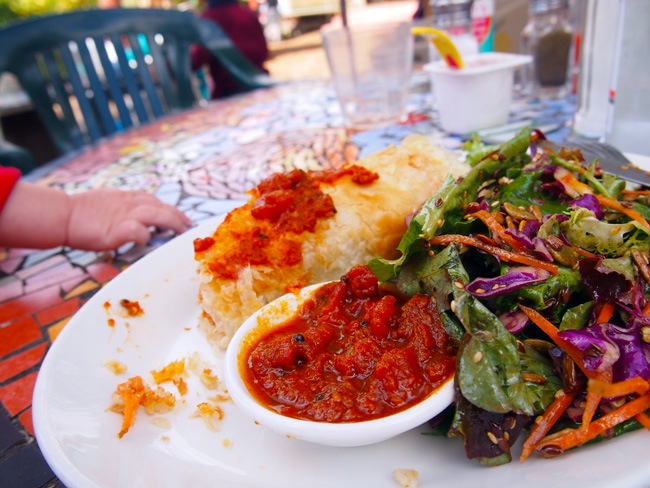

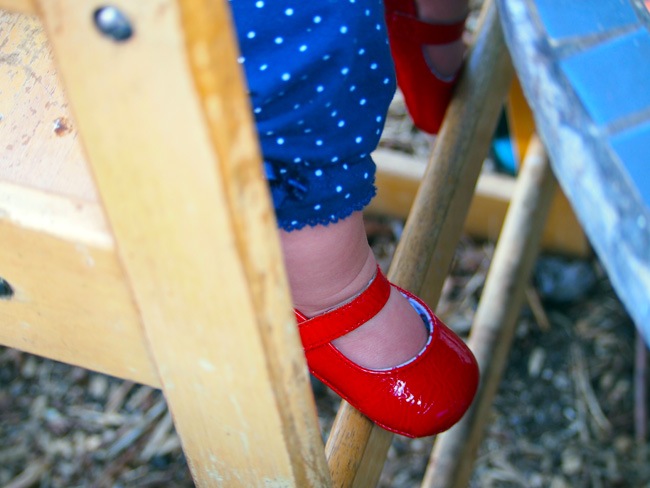

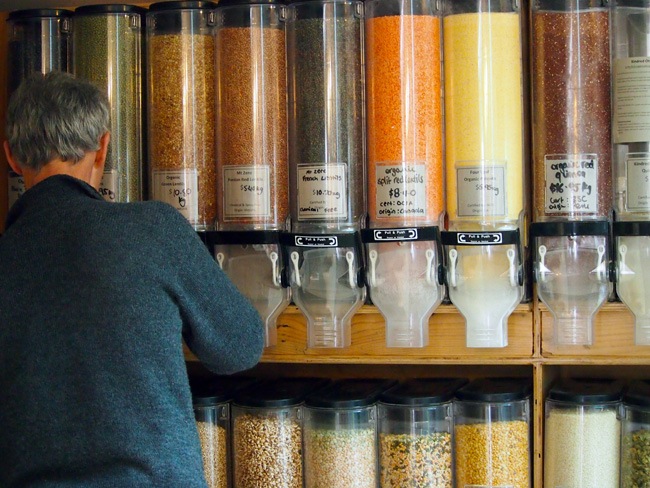

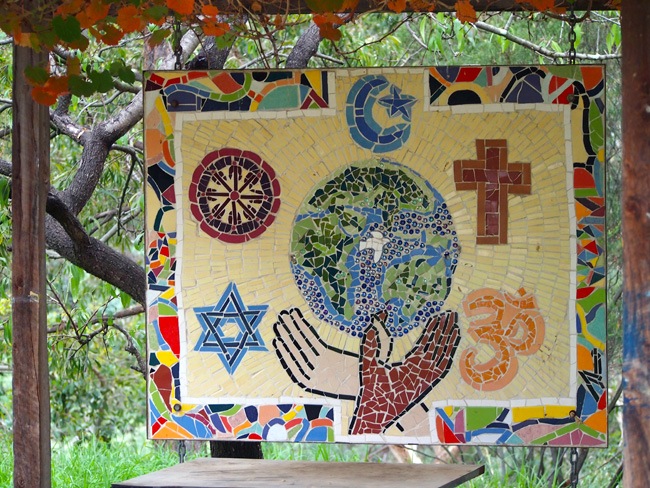 Later Mum and I (and a sleeping Madeleine) strolled over to an old red train-carriage that had since been converted into an intriguing gallery space.
Later Mum and I (and a sleeping Madeleine) strolled over to an old red train-carriage that had since been converted into an intriguing gallery space.
There was an exhibition inside the train carriage called Forest by artist Stefanie Robinson. The name is kind of (and I imagine intentionally) ironic, since the exhibition comprised mostly paper. Long, narrow strips of paper falling from the ceiling almost to the floor, through which you had to wander to see. From a vine twisting along the ceiling, woven nests of blue and brown also hung among the paper forest, and such was the installation and the space that you never could step back and get a view of the whole thing. Like a real forest, you could only really see it and appreciate it from inside.
Reading about this exhibition later, I learned that Stefanie had made the hanging nests from objects found in the landscape after natural disasters, such as Japan after the Tsunami, and country Victoria after the bushfires.
I went in alone and it was beautifully quiet, just the rustling of the paper and the sound of my footsteps, which I instinctively tried to soften. I don't know why.
Also like a real forest, this exhibition was intended to evolve and grow over time. I wish it had lasted longer because I'd have loved you to be able to see it, too. I contacted Stefanie later that afternoon to ask if I could include some photos I took from inside her dreamlike forest on my blog, and she kindly said yes.

